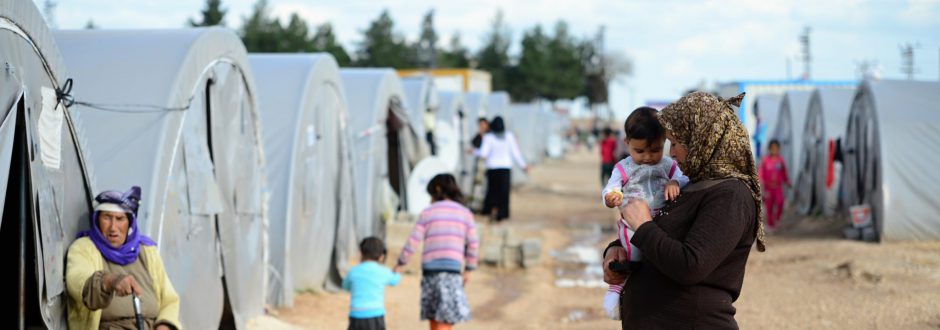Home is our sanctuary, our safe haven, our Glocca Morra, writes Roisin Kelly. But what about those fleeing war-torn countries like Syria? Where is their home?
BY Roisin Kelly
Picture this! A young girl, on the other side of the world reminiscing in song about her home, Glocca Morra, so, so far away now. Home is in every fibre of our being. Culture, language, faith, people, traditions and the land itself, embedded in our soul. Where do I call home, Ireland or Australia? I am drawn to the smell of the gentle rain of Dublin as well as the warm embrace of Sydney summers.
What does home mean to you? Is home a constant tug on your heart no matter where in the world you may find yourself, leaving you pining to return?
Think about the millions of people worldwide who leave their country of birth. What could possibly make someone leave their Glocca Morra?
For some it is a choice, while for others it is forced upon them by factors beyond their control. Some people may choose to emigrate for reasons such as work or an improved lifestyle, chasing “The Great Aussie Dream”. However, as you and I are aware, persecution, environmental disaster, armed conflict and poverty are unfortunately the more common causes of forced emigration.
Home is our sanctuary, our safe haven, our Glocca Morra. But what about those fleeing war-torn countries like Syria? Where is their home? Their homes, their lives, their dreams are reduced to a pile of rubble and the few meagre possessions they can squeeze into a backpack.
We have all seen the devastation and destruction of Mosul and Aleppo nightly on our TV screens. Do we spare a thought for where or how these individuals will make a new home? How desperate would you need to be to place not only yourself, but also your children, in the hands of people smugglers in a tiny overcrowded rubber boat in the middle of a vast ocean?
For these people there is no choice. Escaping war, persecution and poverty is the priority. But often this comes at a terrible price. Surely, you recall the tragic image, in September 2015, of a rescue worker carrying the limp, lifeless body of three-year-old Alan Kurdi off a beach in Bodrum, Turkey. This family made the unbearable sacrifice in pursuit of a new home.
According to the United Nations High Commissioner for Refugees, in 2016 there were more than 65 million refugees worldwide. This is equivalent to the entire population of Italy fleeing their Glocca Morras.
Refugee camps are monuments to human suffering and desperation. People live in canvas tents pitched among thousands, with limited facilities and appalling conditions, dependent on the charity of others. They wait in limbo, their future on hold for years at a time. Children are born and raised in these inhospitable camps on the fringe of humanity.
The Zaatari camp in Jordan with 80,000 people, and Kakuma, Kenya with 185,000, are but two of the hundreds of camps around the globe. How can places like Zaatari, Kakuma and closer to home, Manus Island, ever be anyone’s Glocca Morra?
As a first world country, we in Australia have a moral obligation to lead by example and provide alternate Glocca Morras for those who have lost theirs. Are we prepared to share our home so that they too can sing a new song about their adopted Glocca Morra?
